Robin Williams' Daughter Zelda Claps Back Against 'Over-Processed Hot Dogs' AI Videos Of Dad: 'It's Not What He'd Want!'
By Fiyin Olowokandi on October 7, 2025 at 6:00 PM EDT
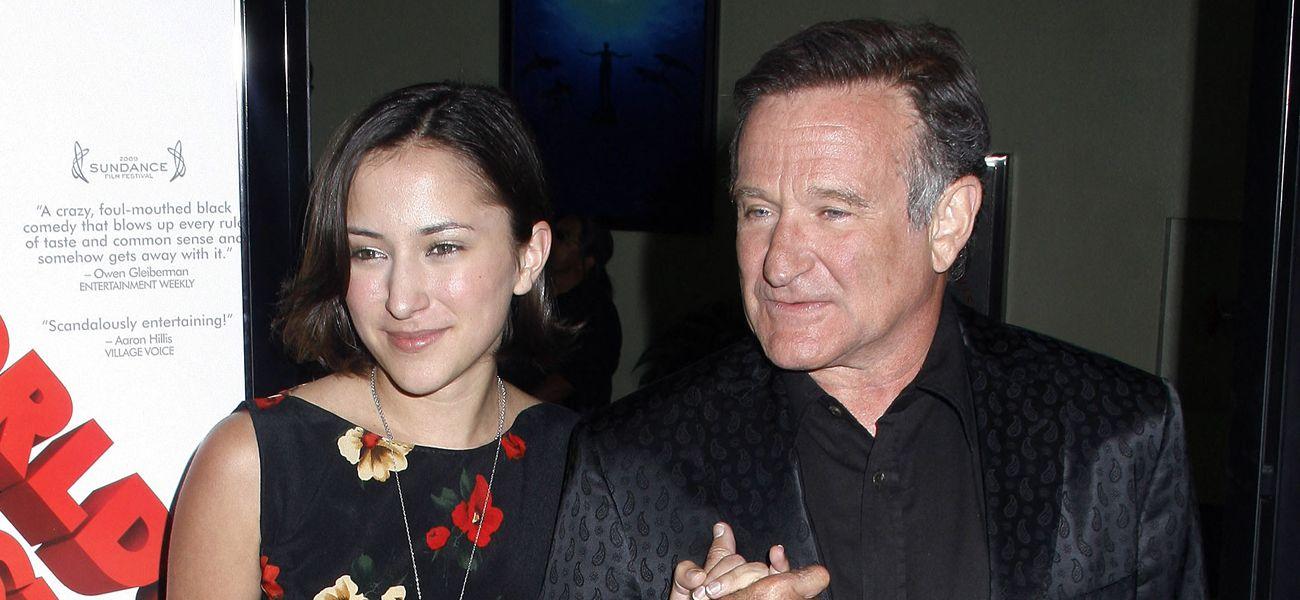
Robin Williams' daughter, Zelda, is making it clear that her father will not be honored through Artificial Intelligence-generated media.
More than a decade after the legendary comedian's passing, his fans continue to celebrate his legacy. However, it seems not to be in the way his family would hope, as deepfakes of him spread online.
Now his daughter, Zelda, is strongly rebuking the trend, noting he would not have liked it.
Robin Williams’s Daughter Zelda Slams Fans For Using AI Videos Of Him
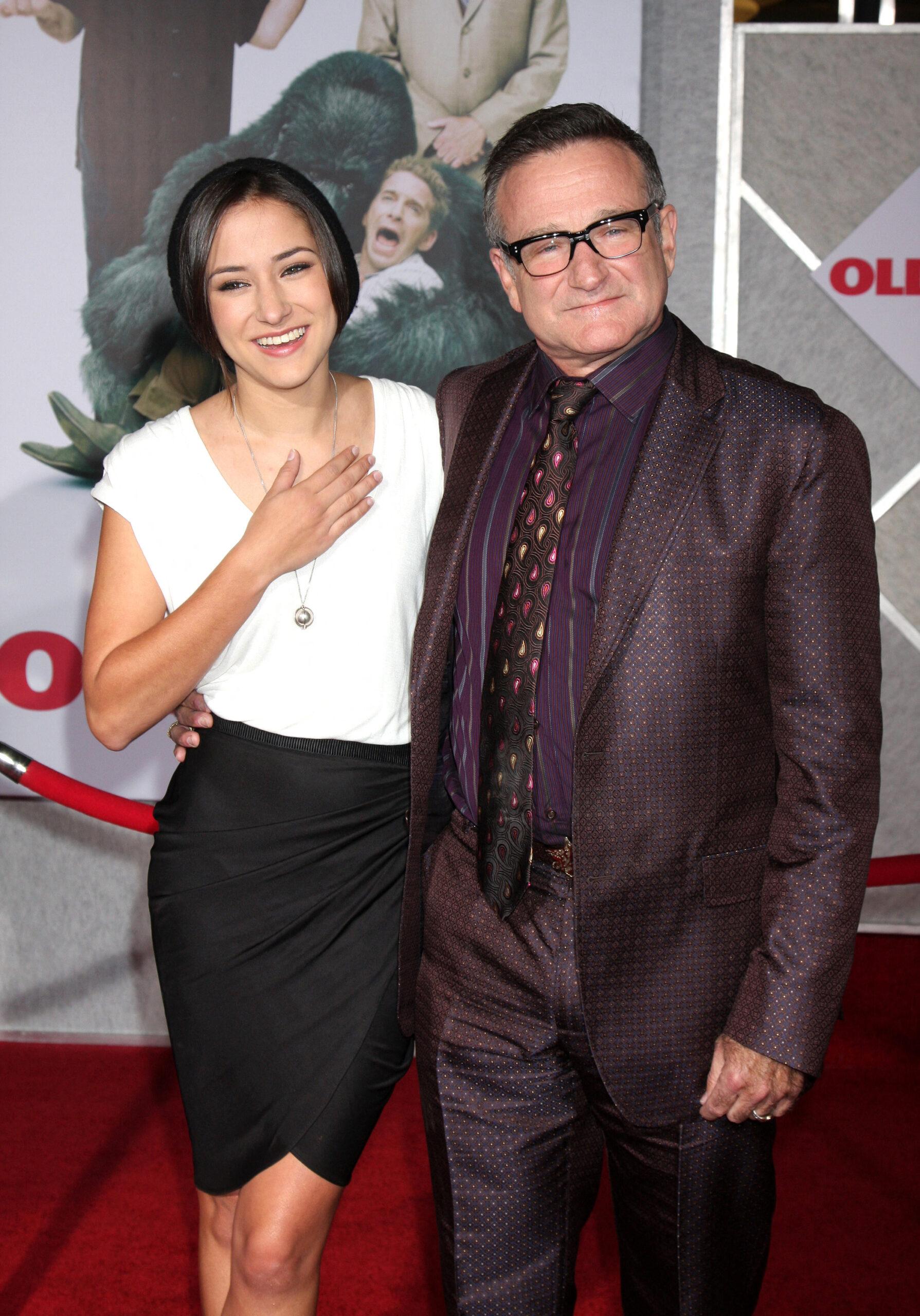
The filmmaker appeared to have had enough of fans spreading the fake clips of her late dad and took to asking them to end it.
“Please, just stop sending me AI videos of Dad. Stop believing I wanna see it or that I'll understand, I don't and I won't,” the movie director wrote on her Instagram Stories.
She added that if the creations were meant to mock her, she had endured far worse, urging people instead to act with “decency” and put an end to the trend. “It’s NOT what he'd want,” Zelda pointed out about her dad’s wishes.
The movie director took a swipe at the masterminds behind the practice, describing it as “maddening.” “You're not making art, you're making disgusting, over-processed hotdogs out of the lives of human beings, out of the history of art and music,” Zelda criticized, before calling it “Gross.”
The “House of D” actress didn’t stop there. In a follow-up post, she blasted the glorification of artificial intelligence as the “future,” stating that “AI is just badly recycling and regurgitating the past to be reconsumed.”
Zelda Williams Has Been An Advocate Against Digital Recreations Of Actors
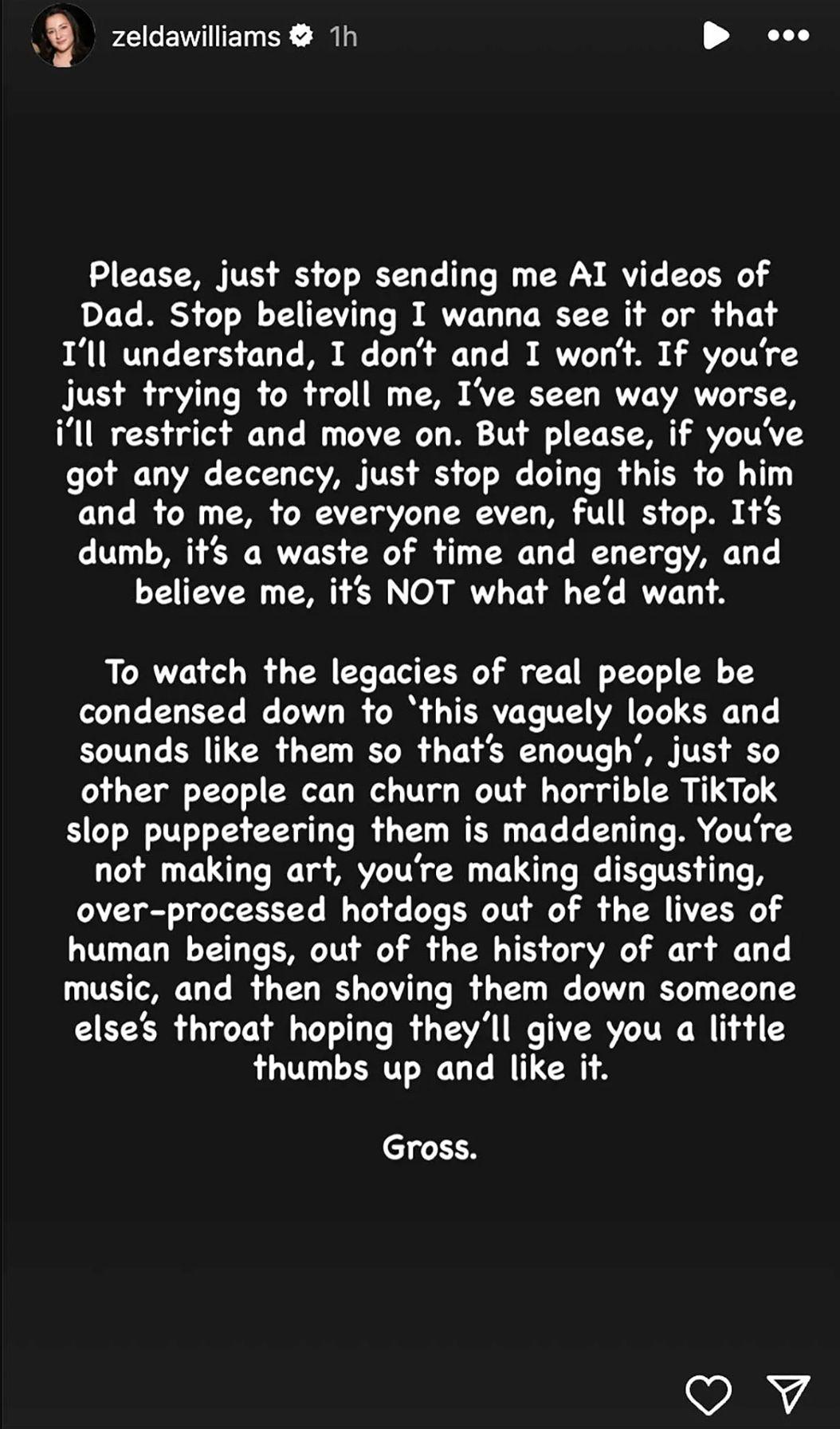
The "Lisa Frankenstein" director has long spoken out against the technological imitation of her late father. During the 2023 SAG-AFTRA strike, Zelda made her stance unmistakably clear, urging people to protect actors' likenesses from being exploited without their consent.
As The Blast reported, she admitted that she found the practice deeply unsettling and stressed that living actors deserve the chance to bring characters to life through their own performances.
Zelda went on to describe the recreations as "a poor facsimile of greater people, and, at their worst, a horrendous Frankensteinian monster."
Matthew Lawrence Hoped to Use AI to Pay Tribute to Robin Williams
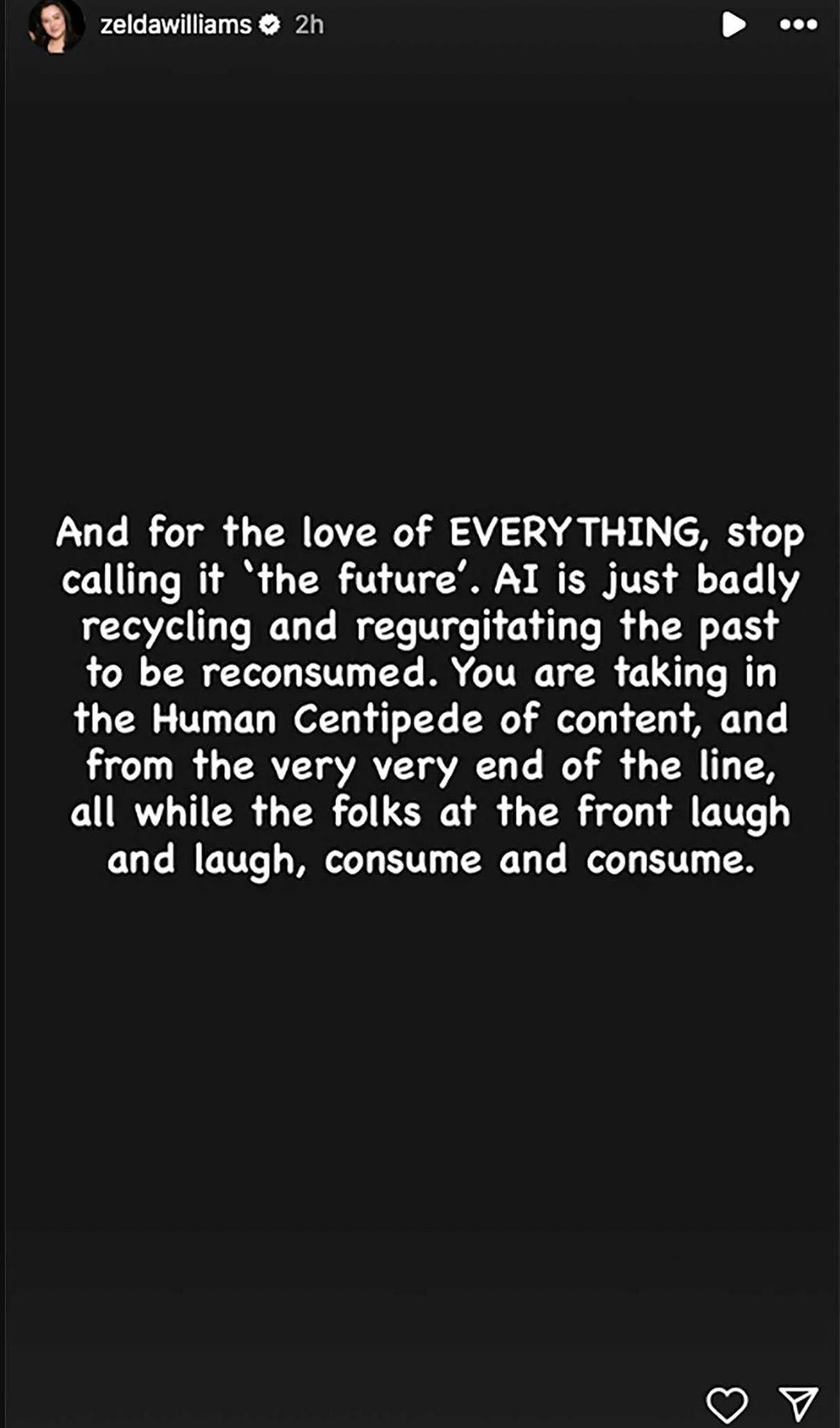
Zelda’s strong criticism hints that she won’t be giving her approval to “Mrs. Doubtfire” star Matthew Lawrence, who hoped to pay tribute to her father using AI.
According to The Blast, Lawrence had in July stated his intentions, saying Williams' voice held deep meaning for an entire generation, and he wanted to do "something really special" recreating it with the family’s permission.
Lawrence was only 12 years old when he appeared alongside the late Williams in the beloved family comedy about a devoted father who disguises himself as a Scottish nanny to remain close to his children after a divorce.
Robin Williams’ Memories Still Live On
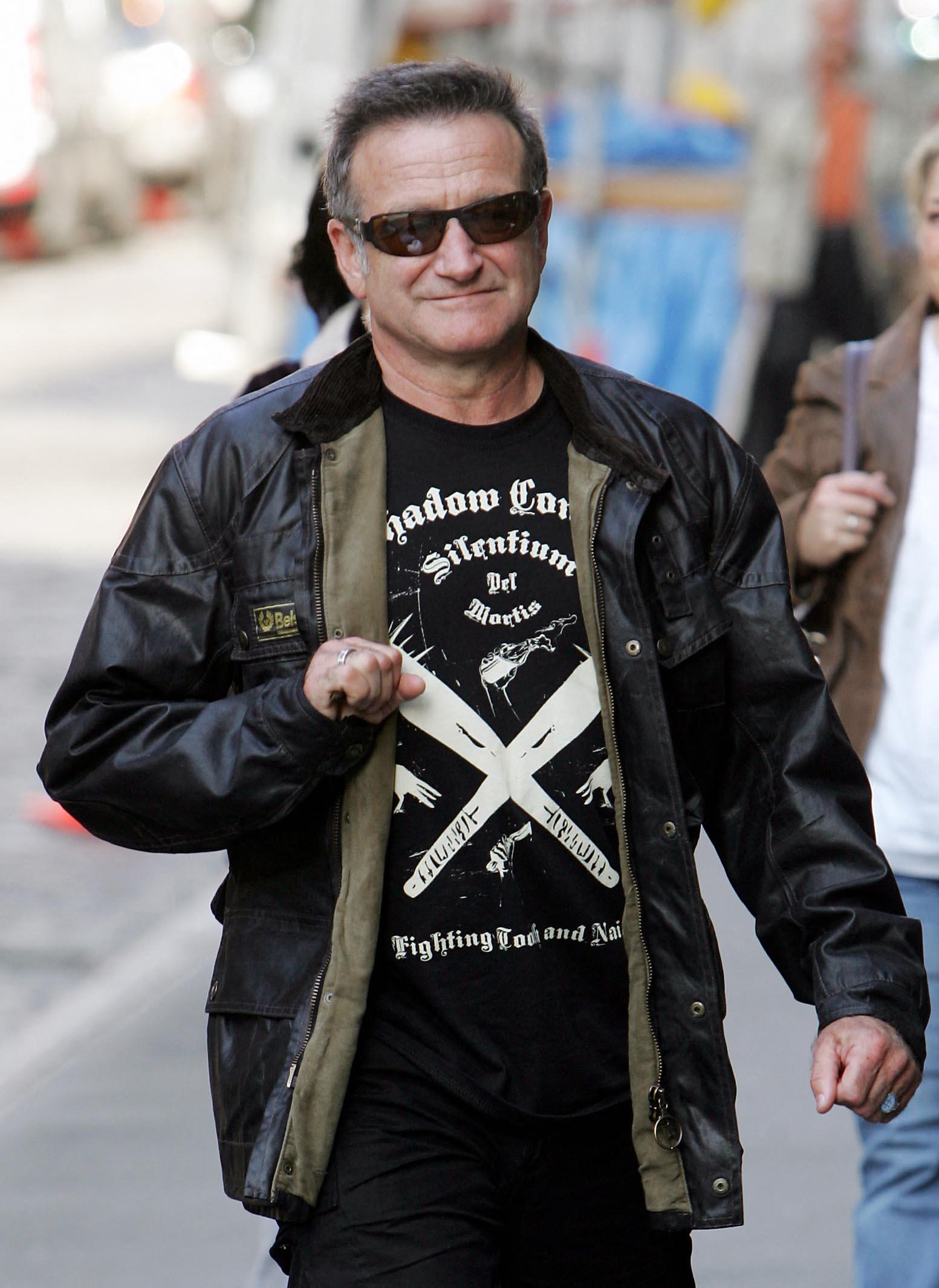
According to Lawrence, his time working with the late Oscar winner left a lasting impact. He shared that Robin Williams's voice and presence have stayed with him ever since their days together on set.
The "Dead Poets Society" actor tragically took his own life in August 2014 at the age of 63, leaving fans across the globe heartbroken.
It was later revealed that Williams had unknowingly been battling Lewy body dementia, a rare brain disorder initially mistaken for Parkinson's disease.
Since his death, tributes have continued to pour in from friends, colleagues, and admirers determined to keep his spirit alive.
Yet for those who knew him best, honoring his legacy also means safeguarding his identity, particularly now in the era where technology has blurred the lines between remembrance and replication.
A Look Into Robin Williams’ Final Days

A few months ago, close friends of the “Good Will Hunting” actor revealed his final moments, explaining they were marked by pain and paranoia.
As The Blast previously reported, Williams' close friends noticed a troubling change as he grew increasingly anxious and distrustful, sensing that something far more serious was wrong than his Parkinson's diagnosis suggested.
His wife, Susan Schneider, recalled first spotting signs of distress in 2013, just two years into their marriage, when his paranoia and confusion became concerning. She described the months that followed as a nearly year-long ordeal marked by constantly changing symptoms.